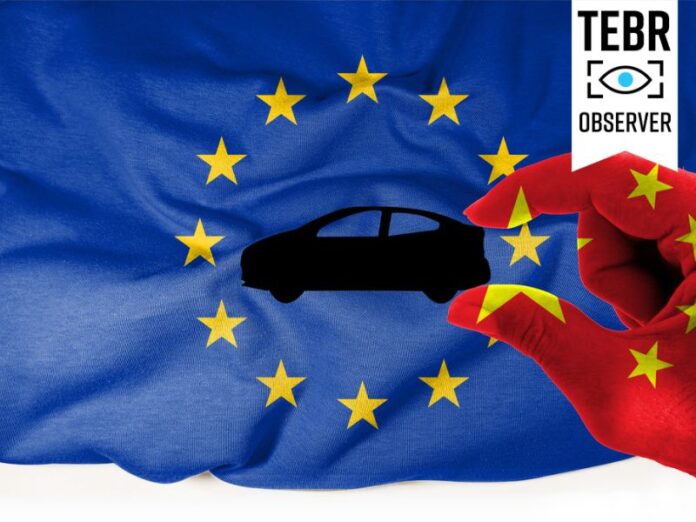By Emil Bjerg, journalist and editor at The European Business Review
The EU has imposed new tariffs on Chinese electric vehicles, a decision that has divided EU members and elicited a fast response from Beijing.
The European Union has imposed significant tariffs on electric vehicles, particularly on those imported from China. Following a year-long anti-subsidy investigation, the European Commission has established tariffs ranging from 7.8% for Tesla to 35.3% for SAIC, a Chinese manufacturer. The new tariffs will be applied on top of the existing 10% standard car import duty.
The tariffs have been imposed after the European Commission concluded that the EV “value chain in China benefits from unfair subsidisation”. According to the Commission, this is “causing a threat of economic injury” to European EV manufacturers.
European carmakers face challenges after a surge in cheaper EVs from Chinese competitors. The European Commission estimates that the market share of Chinese brands in the EU has increased from less than 1% in 2019 to 8% currently, with projections suggesting it could reach 15% by 2025. The Chinese EVs are typically priced about 20% lower than their EU counterparts.
The new tariffs take effect the same week as the German Volkswagen announced the closure of three domestic factories, marking the first time in the car giant’s 87-year history that they have closed homeland production. Difficulties in selling cars in the Chinese market, where local vehicles offer a favorable price-quality ratio, are a primary reason for shutting down production. The German economy – recently seen as the European powerhouse – is currently in decline for the second consecutive year.
Towards a Beijing Backlash?
China has already reacted with an official statement: “China does not agree with or accept the ruling,” the Chinese commerce ministry stated Wednesday. The statement calls the tariffs “protectionist” and “arbitrary”.
As a consequence, China has already informed its carmakers to halt big investments in the European countries that support the additional tariffs on Chinese EVs. This could be the first of several steps, if the two powers fail to reach a diplomatic solution.
Both parties have an interest in avoiding a trade war: Europe relies on China for critical raw minerals, while China relies more heavily on the EU for exports than vice versa.
The Chinese commerce ministry has stated that it hopes to find a “solution acceptable to both sides as soon as possible to avoid escalating trade friction,” while the EU has said that technical negotiation can resume with the new tariffs imposed.
European Tariff Division
The tariffs have created internal division in the EU as well. Of the 27 EU members, five voted against tariffs while 12 abstained from voting.
Germany, the largest car producer in Europe, opposes the tariffs. The German car industry shares this stance. The CEO of BMW, Oliver Zipse, called the tariffs a “fatal signal for the European automotive industry.” He argues that what “is needed now is a quick settlement between the EU Commission and China to prevent a trade conflict from which no one gains.”
The EU is not alone in considering tariffs on Chinese products. Trump, who could be elected as US President in less than a week, recently revealed plans to increase tariffs on European and especially Chinese imports.
This continues a broader trend of superpower competition via internal subsidization and external tariffs to build and protect strategic industries, reinforcing a shift towards protectionism and further distancing globalist, free-trade-oriented approaches of the recent past.



























![“Does Everyone Hear Me OK?”: How to Lead Virtual Teams Effectively iStock-1438575049 (1) [Converted]](https://www.europeanbusinessreview.com/wp-content/uploads/2024/11/iStock-1438575049-1-Converted-100x70.jpg)




